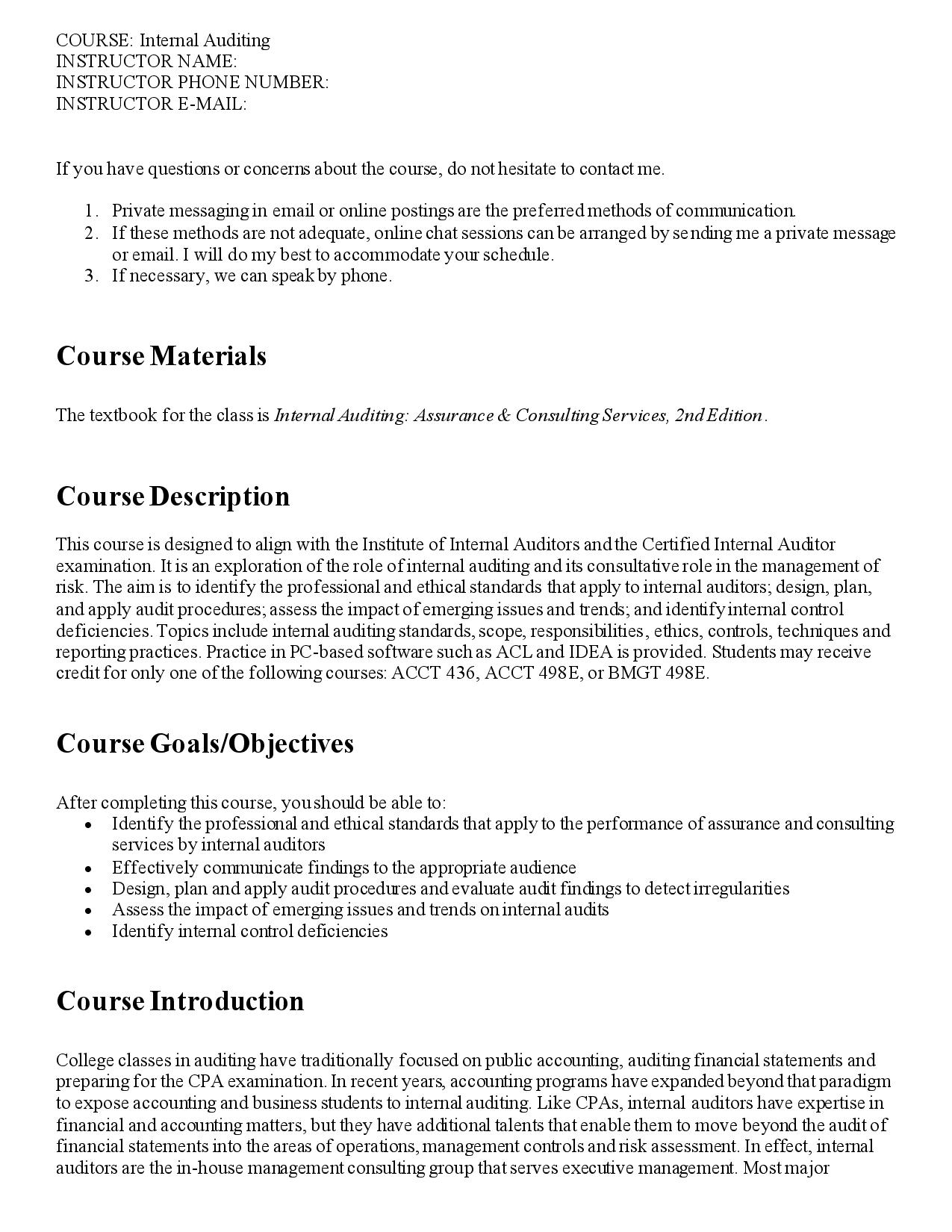Introduction to Internal Auditing Course Sample Syllabus

Thank you to Professor Steve Ulmer from the University of Maryland University College for contributing this content!
Course Description
This course is designed to align with the Institute of Internal Auditors and the Certified Internal Auditor examination. It is an exploration of the role of internal auditing and its consultative role in the management of risk. The aim is to identify the professional and ethical standards that apply to internal auditors; design, plan, and apply audit procedures; assess the impact of emerging issues and trends; and identify internal control deficiencies. Topics include internal auditing standards, scope, responsibilities, ethics, controls, techniques and reporting practices. Practice in PC-based software such as ACL and IDEA is provided. Students may receive credit for only one of the following courses: ACCT 436, ACCT 498E, or BMGT 498E.
Course Goals/Objectives
After completing this course, you should be able to:
- Identify the professional and ethical standards that apply to the performance of assurance and consulting services by internal auditors
- Effectively communicate findings to the appropriate audience
- Design, plan and apply audit procedures and evaluate audit findings to detect irregularities
- Assess the impact of emerging issues and trends on internal audits
- Identify internal control deficiencies
Course Introduction
College classes in auditing have traditionally focused on public accounting, auditing financial statements and preparing for the CPA examination. In recent years, accounting programs have expanded beyond that paradigm to expose accounting and business students to internal auditing. Like CPAs, internal auditors have expertise in financial and accounting matters, but they have additional talents that enable them to move beyond the audit of financial statements into the areas of operations, management controls and risk assessment. In effect, internal auditors are the in-house management consulting group that serves executive management. Most major corporations now have an internal audit department that usually reports organizationally to a high level in executive management and functionally to the audit committee of the board of directors.
This course is an introduction to internal auditing, its rapid growth, and its role in the modern corporations. In addition to covering the internal auditing environment, the course will address internal auditing standards and processes, the effects of information systems on internal auditing, fraud prevention and detection, and the management of the internal audit function.
The prerequisite for this course is ACCT 311: Intermediate Accounting II or equivalent.